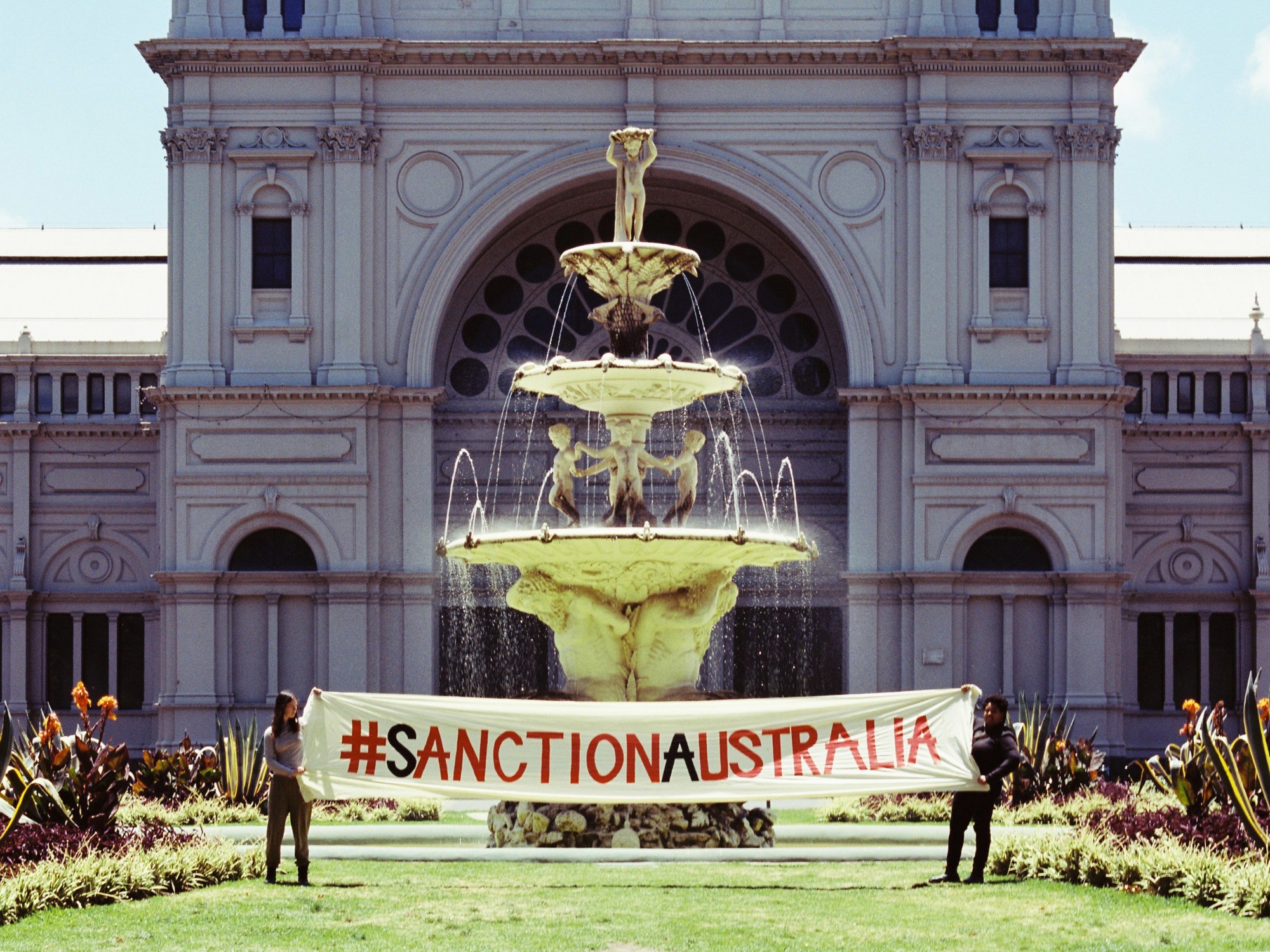I saw Divide and Dissolve play a sold out performance at a local band venue late last year and it felt utterly electric. The Melbourne based duo, Takiaya Reed and Sylvie Nehill, make heavy instrumental doom and are formidable on stage. While neither sing, Takiaya does the talking in between songs. Divide and Dissolve have a lot to say. During the show a white dude made some smart ass, racist comments from the audience, clearly not picking up on the band’s stance on white supremacy or the messages emblazoned on punter’s shirts around him. This is precisely the attitude Divide and Dissolve are trying to dismantle with their music.
When we speak, the pair reveals they’ve recorded two albums during the week, both to be released in 2018. In a couple of months, they’ll also fly over to the States to perform at SXSW. As the band prepares for a huge year, we caught a moment with them to discuss music with meaning, merch and shutting down hecklers as an art form.
To begin, is there anything you two want to talk about? Anything you’re excited about right now?
Takiaya: I’m hella sick of people thinking that they can take a stand for refugee rights and ignore Indigenous sovereignty. It’s really upsetting.
Is it like people welcoming refugees, even though it’s not their land?
Takiaya: Yeah, how is that a cohesive thought process? People have these passionate conversations about wanting refugees to come here and then they don’t include issues of Indigenous sovereignty. That’s completely skewed.
If you don’t mind me asking, are you both Indigenous?
Sylvie: I have Maori and white ancestry.
Takiaya : I’m black and Indigenous.
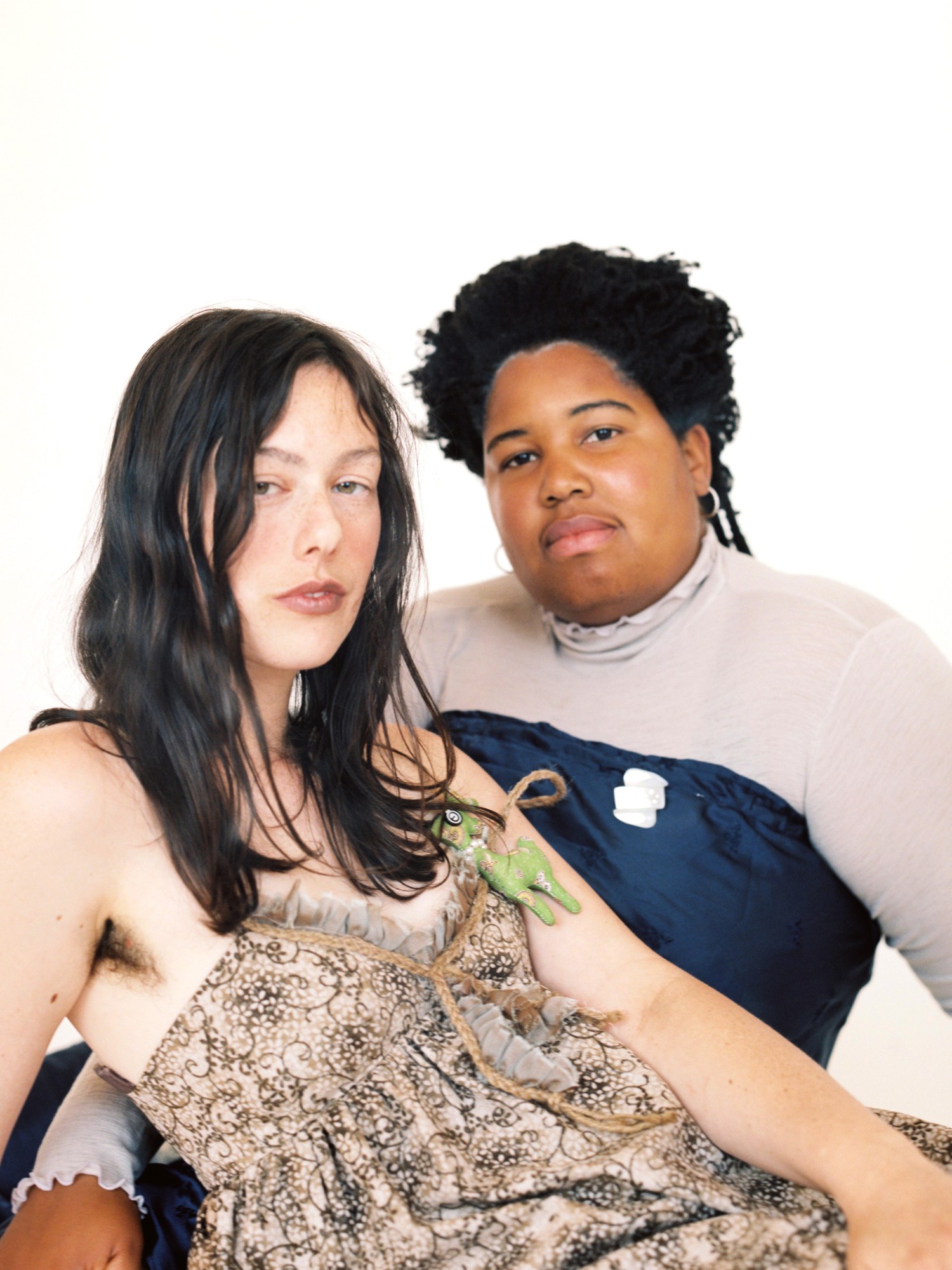
So you’re from Turtle Island, another settler colonial society. How did you two connect?
Sylvie: I’m from Geelong.
That’s a wild connection. Your music wouldn’t typically be associated with a town like Geelong.
Sylvie:: Yeah, totally. I feel pretty isolated here. But also I think that’s why I like being here. A lot of heavy music has come out of Geelong but I definitely haven’t seen any heavy bands from here who are political or talk about Indigenous sovereignty.
How did you two connect?
Sylvie: Through our dear friend Jharna, an incredible visual artist.
It was so nice watching you both at the Gasometer show last year. It felt like how you can communicate with another person without really talking. It was really nice to observe.
Sylvie: And it’s really nice [for us] to experience too. I love that people can share in that when they come to the show, because it’s really awesome. I feel so free when we get to play together. I hope people at the shows also feel lost in the music and disconnected from time.
Takiaya : Yeah, I feel like we don’t need words at all and we’re communicating in another world without observing the colonial, normative borders of space and time.
You’re a band that exists with the purpose of ending white supremacy. When you’re unlearning stuff it’s a constant process: do you find it’s something that you have to keep in check with, in the way you relate to each other and the power dynamics in the band? Is it something you are aware of or have to remain aware of? Tell me to fuck off or stop recording if you like.
Sylvie: I’m trying to keep that on my mind constantly and work through every action and thought. I try to keep that super present.
Takiaya : I definitely feel like it’s a dynamic that’s there. It’s funny when we play gigs, it gets really intense. Sometimes people think it’s really appropriate to attack us, and people think it’s appropriate to attack me. I think Sylvie has done a really good job of having my back. Sometimes when someone is perceived as a person of colour people decide to ignore everything you say. And then if your friend, who is perceived as a white person, says the exact same thing then they decide to listen. We do a lot of this when I’m expressing concern.
Takiaya, you are so calm by the way. Thinking how calmly you spoke to the hecklers in the audience and how sarcastic you were, it was almost comedy, given how brilliant you were. For you, is it about someone having your back?
Takiaya: Yeah, I think it’s important for people to understand that just because Sylvie and I are different, it doesn’t mean that we aren’t cohesive. And it’s obviously bigger than Sylvie and me, it’s a massive situation. We have decided to fight back and we’re being protected by our ancestors when we’re up there speaking about genocide and Indigenous sovereignty. I think it’s interesting how we experience and interact with confrontation. People are in complete shock at how we handle it, they just freak out.
You’re on stage and it’s your space. It utterly seems like you are in complete control of the situation, which is incredible to witness. What’s 2018 going to look like for you two?
Sylvie: It’s going to be massive. We’re putting out two albums, we’re going on tour, we’re playing SXSW. I feel super open.
Takiaya : I feel open too! Don’t know what’s going to happen, but we’re ready. We just recorded two albums this week.
Sylvie: We’ve had a huge week.
Takiaya : We’re releasing an album with this techno band called Phile.
You two don’t sleep on anything. That’s gonna be good. As an aside, your band merch is really popular. Was that a surprise? I feel like it’s taken on a life of its own.
Takiaya : We’re not completely clued in because we don’t distribute our merch, our label Dero Arcade does. We’re on tour a lot of the year, which is part of the reason we can’t mail our shirts out ourselves.
Sylvie: We know our label has had to reorder a bunch of times. My friends will be like, “We saw so many kids wearing your t-shirts at this party,” and I think that’s so cool.
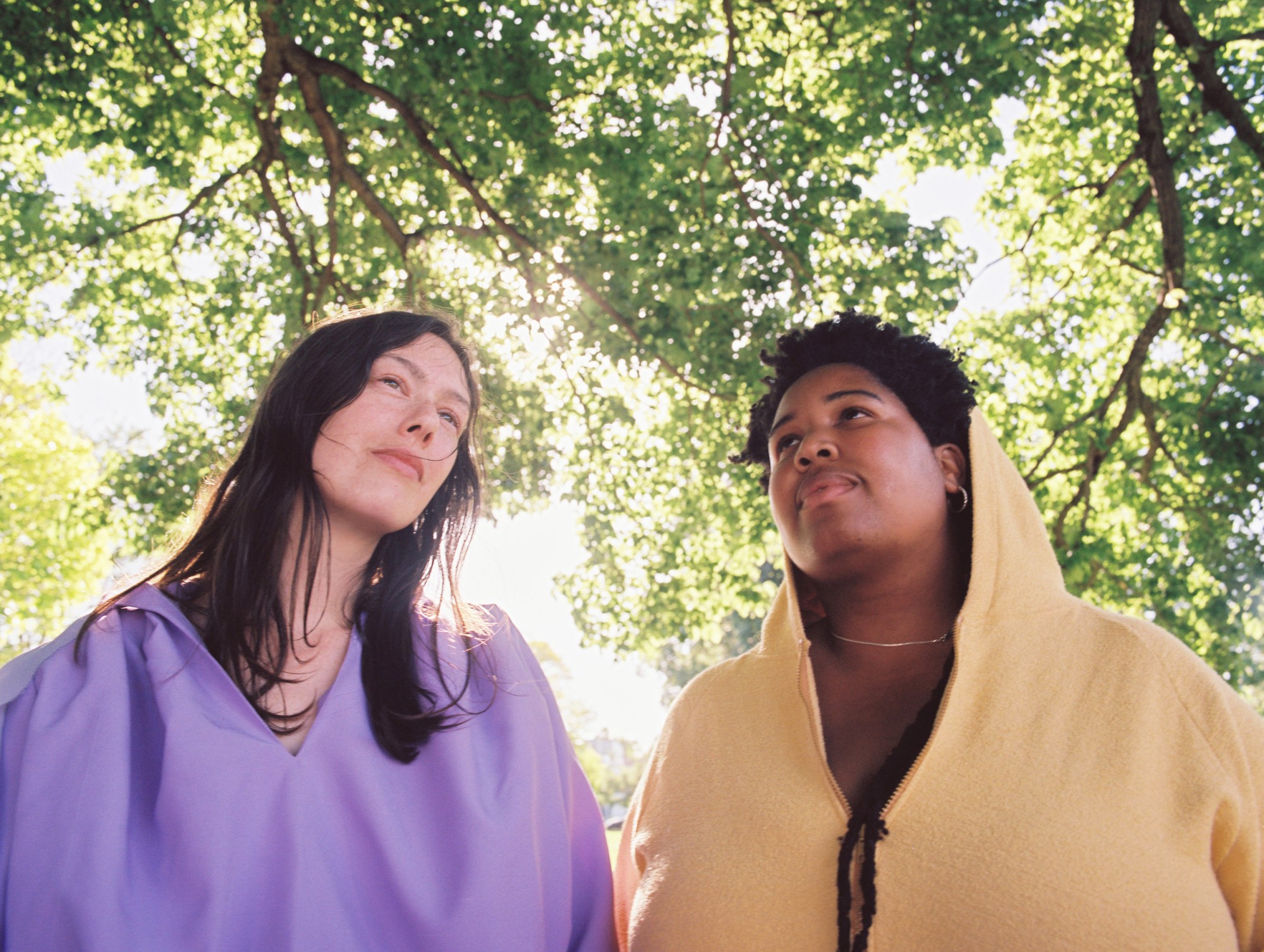
There’s power in the t-shirt, because people are forced to look. I know a lot of young blackfullas who wear the ‘Black is Beautiful’ shirt because it’s so affirmative and it makes white people uncomfortable.
Takiaya: It’s so special to hear that the shirt is powerful for people, especially blackfullas. That’s all I could ever hope for really.
So, you were over in the US recently. Do you spend a lot of your time there?
Takiaya : I spend most of my time in Australia, I’ve been living here for seven years. Usually when we’re done touring I’ll go see my parents. Recently my grandma died and I needed to feel grounded and then come back.
I’m so sorry. So, you mob don’t sing, your music’s instrumental, so it’s really nice to hear your voices. As you guys get more famous – I saw you did a shoot with Just Babes Club – I wanted to ask what it’s like to kind of suddenly be catapulted to the realm of a public figure.
Sylvie: Personally I don’t experience life as a public figure. I haven’t experienced that but I can see it going that way as we get bigger.
Takiaya : I’m just really spaced out. We’re just two weirdos who like fashion and enjoy hanging out with people.
Yeah, you’re real stylish.
Takiaya : The fashion thing is deeply loaded, in terms of how people decide to interact with our bodies on social media and in real life. It’s like oh yeah – the whole Black is Beautiful t-shirt is a critique on us thinking we should hate ourselves. But we don’t. As Black people we shouldn’t have to hate ourselves, when black people are so beautiful. Just deconstructing and decolonising our gaze and what we consider as our standard of beauty. It feels fun to engage in the fashion world in that way because it’s quite shocking to people: “Ooh, you don’t hate yourself?” No, absolutely not!
The audacity to not hate yourself! Wild!
Takiaya : Yeah. I don’t think I’m ugly and I don’t hate myself. And I think that people of colour are extremely beautiful and that’s destroying what is typically considered the standard of beauty and decolonising that gaze in general.
Is there anything you want to give a shoutout to? Other bands or anything you’re really into right now.
Sylvie: Papaphilia!
Takiaya: Willow Beats. I’m thinking of Shawna, Osa, Ramdasha, Fjorn and Latoya. There are so many important people who help make our band sustainable and accessible, because it’s really challenging being in a band. As Divide and Dissolve evolves, there are so many people who are making it possible for us to do what we do, and helping make it emotionally sustainable because we encounter a lot of interesting hurdles. We’re thankful to everyone for being open and being super patient with our learning curve. Would love also love to shout out Radmilla Cody. She’s an amazing singer, and was the first biracial Miss Navajo. She really helped inspire us on tour along with Dana, Lane and Tiffany. We are not doing this by ourselves. That’s not what’s up. We have help and we are so grateful.

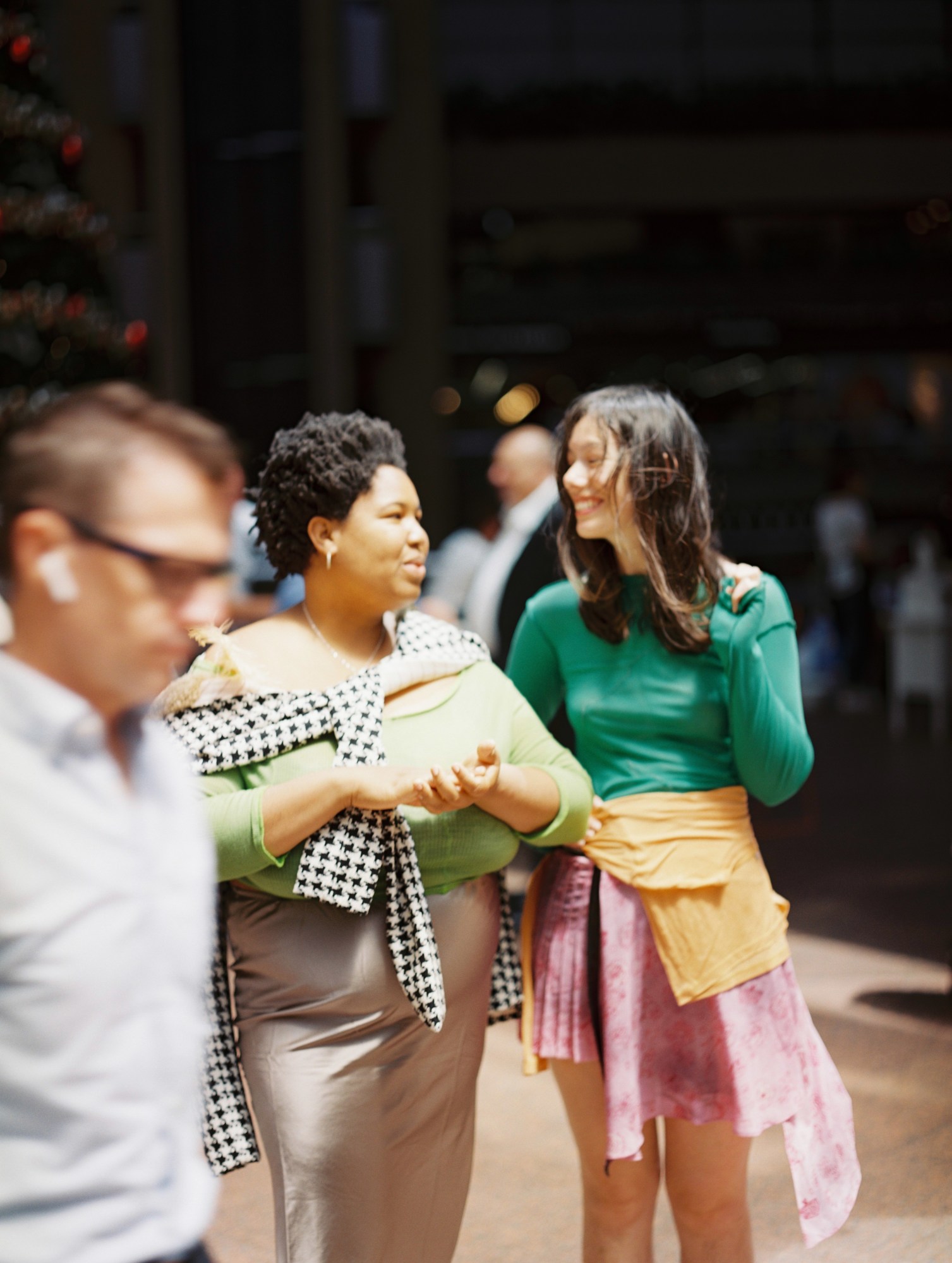
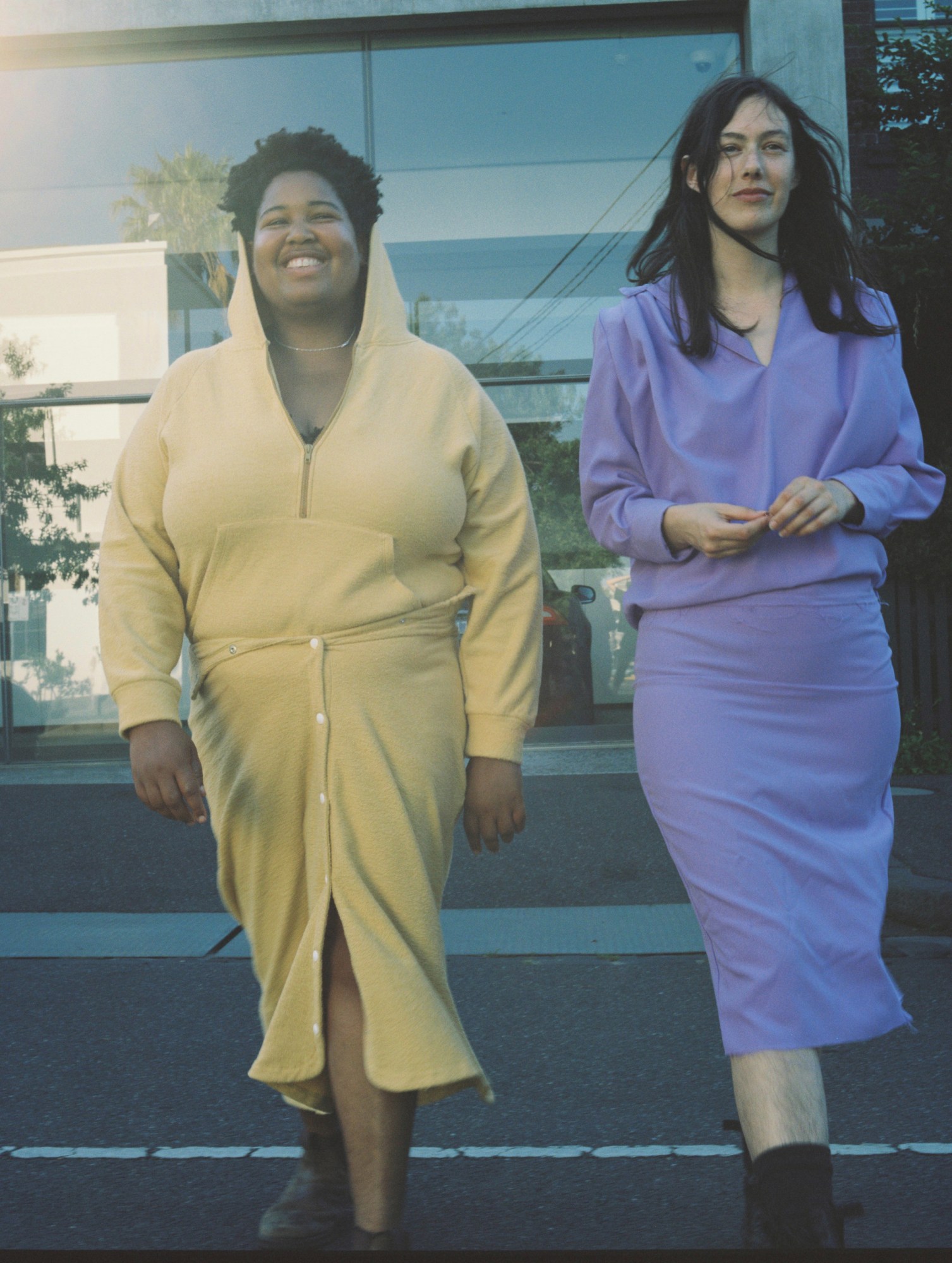
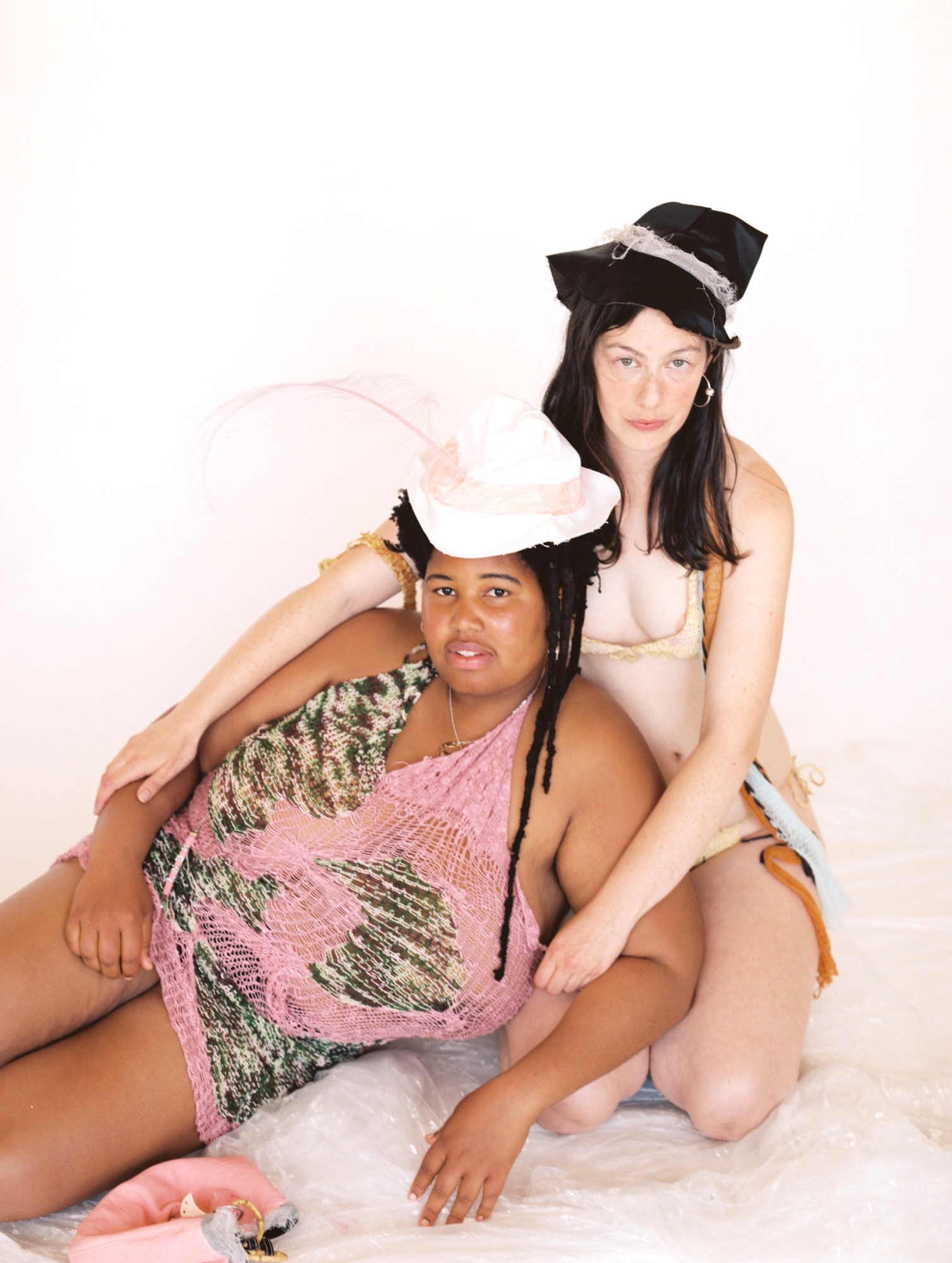
Credits
Text Nayuka Gorrie
Photography Rowan Oliver
Makeup Nadja Mott
Thanks to Second Space Projects
